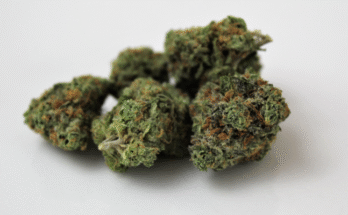While governments worldwide argue over drug policy like it’s still 1998, New Zealand just leapt ahead and quietly becoming the latest country to approve psilocybin for medical use.
That’s right: shrooms, once claimed by experts to “fry your brain”, are now officially part of a government-backed mental health toolkit.
A Legal Trip With a Doctor’s Note
The change allows one psychiatrist (yes, just one) to prescribe psilocybin for treatment-resistant depression, a condition that is unaffected by SSRIs and leaves millions with little hope.
That psychiatrist is Dr. Cameron Lacey, a professor at the University of Otago who’s already guided people through psilocybin journeys in clinical trials. He’ll now be doing the same under real-world conditions – albeit with strict reporting and record-keeping requirements.
“This is a real breakthrough,” said David Seymour, Associate Minister of Health and unlikely psychedelic reform champion.
For a country where melatonin just got downgraded from prescription-only status, this dual announcement signals a deeper shift: one toward evidence-based, sovereignty-rooted medicine.
Global Reform?
New Zealand’s decision is part of a growing underground-to-overground movement that’s spreading glabally.
- Australia jumped the fence in 2023, allowing certain psychiatrists to prescribe psilocybin (and MDMA) for depression and PTSD.
- Switzerland has quietly been doing this since 2014.
- Canada and multiple US states (Oregon, Colorado, New Mexico) are creating licensed, clinical frameworks that look more like biohacking spas than traditional medicine.
- Bills are actively working their way through Massachusetts and Minnesota, pushing the Overton window like a mushroom cap breaking through concrete.

In the UK, psilocybin remains a Class A Schedule 1 drug (though is allowed in tightly licensed research trials) and although cross‑party political pressure and growing clinical evidence are pushing for its reclassification, no timeline has been set for medical use.
Why It Matters (Especially to Us)
At High & Polite, we believe medicine is most powerful when it respects human biology, personal freedom, and ancient intelligence.
And psilocybin is more than just a “hallucinogen.” It’s a serotonergic amplifier. A neuroplasticity enhancer. A tool for rewiring broken pathways and shaking people out of stuck emotional loops.
And unlike the pharma playbook, it doesn’t require a daily pill, just a well-guided experience – Often over just one or two sessions.
So what’s the hold-up? In short: stigma. Decades of propaganda. And a legal framework built around control, not care.
But as New Zealand just showed us, things are changing. Governments are realising that banning a substance doesn’t make it go away. It just pushes it underground, away from safety, science, and support.
As Seymour put it: “If a doctor believes psilocybin can help, they should have the tools to try.”
That’s not just common sense. It’s medical freedom.
And in a world grappling with epidemics of burnout, depression, and disconnection, it’s about time mushrooms got a seat at the table.
💡 Want to learn more about the science, safety, and future of psilocybin in the UK?
Subscribe to our free newsletter: UK Cannabis Weekly
Stay high. Stay polite. Stay informed.




